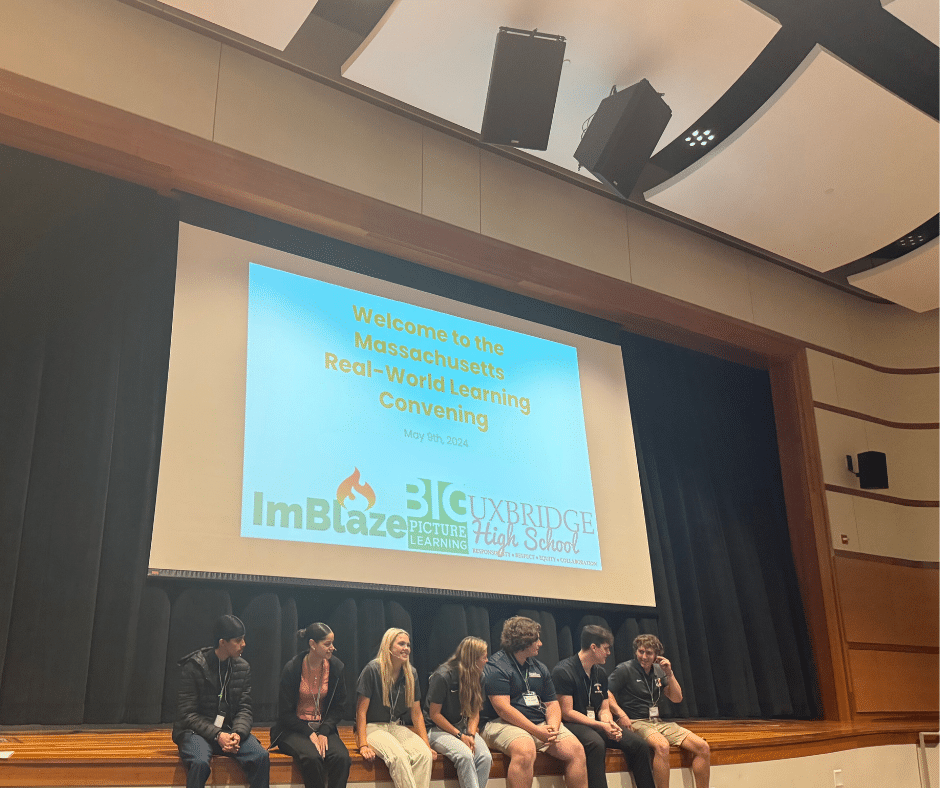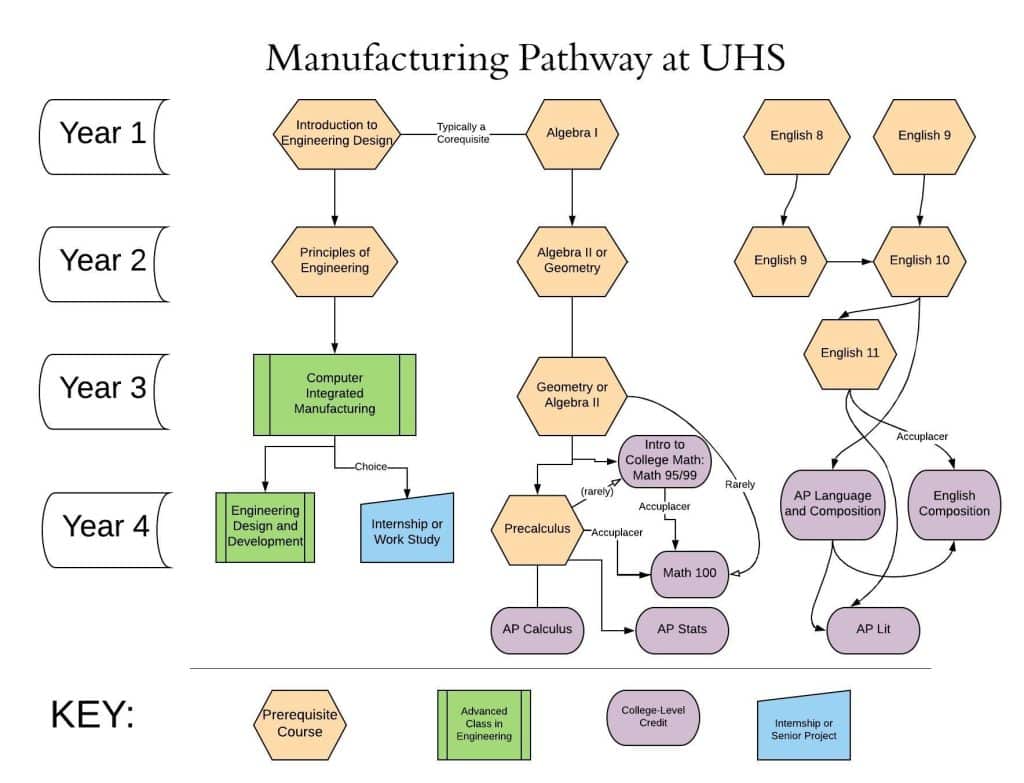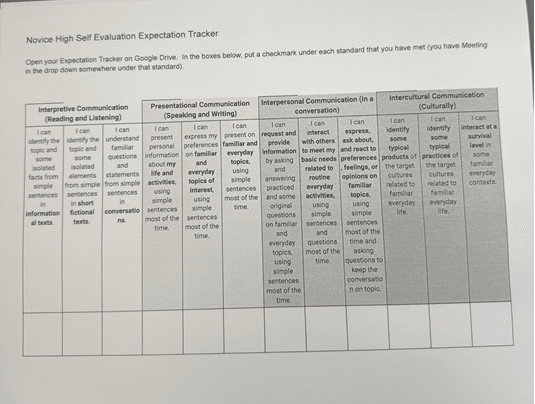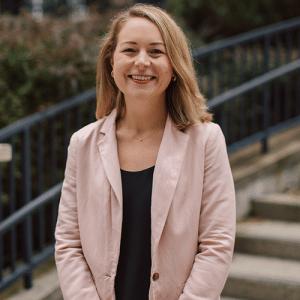Getting Started With Real-World Learning at a Comprehensive High School
CompetencyWorks Blog

This month, I had the opportunity to attend a Real-World Learning convening at Uxbridge High School in Massachusetts, which was organized in partnership with Big Picture Learning and imBlaze. Three years ago, Uxbridge High School, a traditional, comprehensive high school situated in Massachusetts’ Blackstone Valley on the Rhode Island border, had about 15 to 20 students participating in its internship program. For the upcoming 2024-25 school year, that number now tops 80 students (about 75% of all seniors).
Real-world and career-based learning is now infused throughout the learning experience at the high school, which has students in grades 8-12. Students are allotted time during school hours to work with industry professionals and gain real-world, hands-on experiences in opportunities aligned with their interests. The school curriculum has been redesigned around four innovation pathways: 1. Manufacturing, 2. Biomedical Science, 3. Media and Information Science, and 4. Business and Finance.
A Pathway to School Change
The way principal Mike Rubin talks about it, this wasn’t by accident! The emphasis on real-world learning is central to the school’s philosophy. In 2017, Uxbridge High School participated in a One8 Foundation sponsored visit to Nashville Public Schools Career Academies, sparking inspiration for building a similar structure in Uxbridge. In 2018, Rubin was able to participate in MassIDEAS Academy, laying a framework for the career-based learning framework at the school. By the spring of 2018, the school had its first designated Innovation Pathway: Manufacturing.

Student Views on Learning at Uxbridge
What does learning look and feel like at Uxbridge? During a student-led panel discussion and tour of the building, I had the chance to learn from and with students themselves as they showcased their school. When Uxbridge students enter the 8th grade, they are invited to take an elective course that serves as an introduction to the four pathways. This allows them to spend time exploring which pathway they might be interested in pursuing. A feeling that I got from all of the learners during the day was that they felt a sense of purpose and agency in their learning. The time spent in the pathways and internships felt extremely relevant and meaningful for each learner.
Landon, a Uxbridge High junior who led my group on a tour around the building, and participates in the Manufacturing track, told us about his internship experience with a local manufacturer. He noted seeing lines of code up on the wall when first walking in. He reflected, “I felt like I was in the Matrix! But then we got to learn how it worked, and it was really cool seeing what I learned in school being applied outside.” Kate, another Uxbridge student who has an internship in Uxbridge’s elementary school nurse’s office, has ambitions of working in pediatric nursing now. She noted that the internship allowed her to learn that she loves working with kids, and said of her internship: “It didn’t feel like I was in school.”
Pathways to School Change
At Uxbridge High, it’s clear that real-world learning is shifting the structures, pedagogy, and culture of the school. It was evident that the school is making real progress focused on developing personalized pathways for learners, a key element of competency-based education. In this sense, real-world learning can be a viable and exciting entry point to competency-based education The school uses Big Picture Learning’s imBlaze platform to manage internships and other real-world, career-interest exploration opportunities for young people, tracking attendance, ensuring compliance, and monitoring the student’s experience to ensure engagement and high outcomes.
“The imBlaze platform has been a game changer for us,” said David Moura, Uxbridge High School’s Dean of Students. “Not only does it help us track interns, but it gives us the feasibility to create timesheets or submit hours for agencies in a timely fashion. The platform allows for us to capture the student’s experience in real time.”
Additionally, the school has now begun a transition to standards-based grading in World Languages, Arts, Tech Ed, Social Studies, and Math. Principal Rubin emphasized that the school is working to foster a culture of innovation and continuous learning. He noted that with a shift in some subjects to standards-based grading, a student might, for a particular project, “build a prototype and it might fail, but you don’t fail.”
On my tour, we visited a Spanish language classroom where this structure was in place. “There are no grades here,” the students told us. Instead, students are assessed upon their demonstration of competency around clear standards. The Spanish teacher noted that while students still have a traditional transcript where the course is designated Pass/Fail, they are also required to present portfolios where they receive a designation of Meeting, Approaching, or Failing Standards. She noted that it’s really changed the culture and vibe of the learning experience. The school is beginning work on standards-based portfolios so that student work follows the student. In fact, this year, 80 Uxbridge High students are doing capstone projects.

The educators I met with noted that the work of career-based and real-world learning requires true partnerships with community members. “We bring in community members and have them observe classes,” Rubin noted. “We ask them, ‘What do you see here; what would you do differently?’ We ask for feedback from our industry partnerships. Then we invite them back and show them how we’ve made a change as a result of their feedback. That’s how you build buy-in.”
It was also clear to me in speaking with Uxbridge teachers that a spirit of innovation, respect, and trust was evident throughout the school culture. A number of educators told me that they felt like they had the trust of school leadership to try out new ways of working, and were also afforded the time needed to create industry partnerships with local businesses and community members.
Throughout the day, the feeling of excitement and student ownership seemed to permeate through the school walls. The educators shared another example of Uxbridge students who worked with a local manufacturer – Lenze Americas – to redesign carrying cases for their products. Sales people for Lenze now walk around all over the world with carrying cases emblazoned with the words: “Partnership with Uxbridge Manufacturing Pathway.”
 Chiara Wegener is the Aurora Institute’s Communications Director, and joined the Aurora Institute in 2022 with over a decade of experience working in the communications and education innovation space. Most recently, Chiara served as the Chief Communications Officer at the Nellie Mae Education Foundation, New England’s largest philanthropic organization focused exclusively on public education. At Nellie Mae, Chiara led innovative communications strategies that helped build public understanding and demand for student-centered approaches to learning, and drove conversations about making our school systems more racially just. Chiara’s work has helped senior leaders land thought leadership pieces in outlets such as The Boston Globe, The New York Times, Newsweek, and Inside Philanthropy, among others.
Chiara Wegener is the Aurora Institute’s Communications Director, and joined the Aurora Institute in 2022 with over a decade of experience working in the communications and education innovation space. Most recently, Chiara served as the Chief Communications Officer at the Nellie Mae Education Foundation, New England’s largest philanthropic organization focused exclusively on public education. At Nellie Mae, Chiara led innovative communications strategies that helped build public understanding and demand for student-centered approaches to learning, and drove conversations about making our school systems more racially just. Chiara’s work has helped senior leaders land thought leadership pieces in outlets such as The Boston Globe, The New York Times, Newsweek, and Inside Philanthropy, among others.